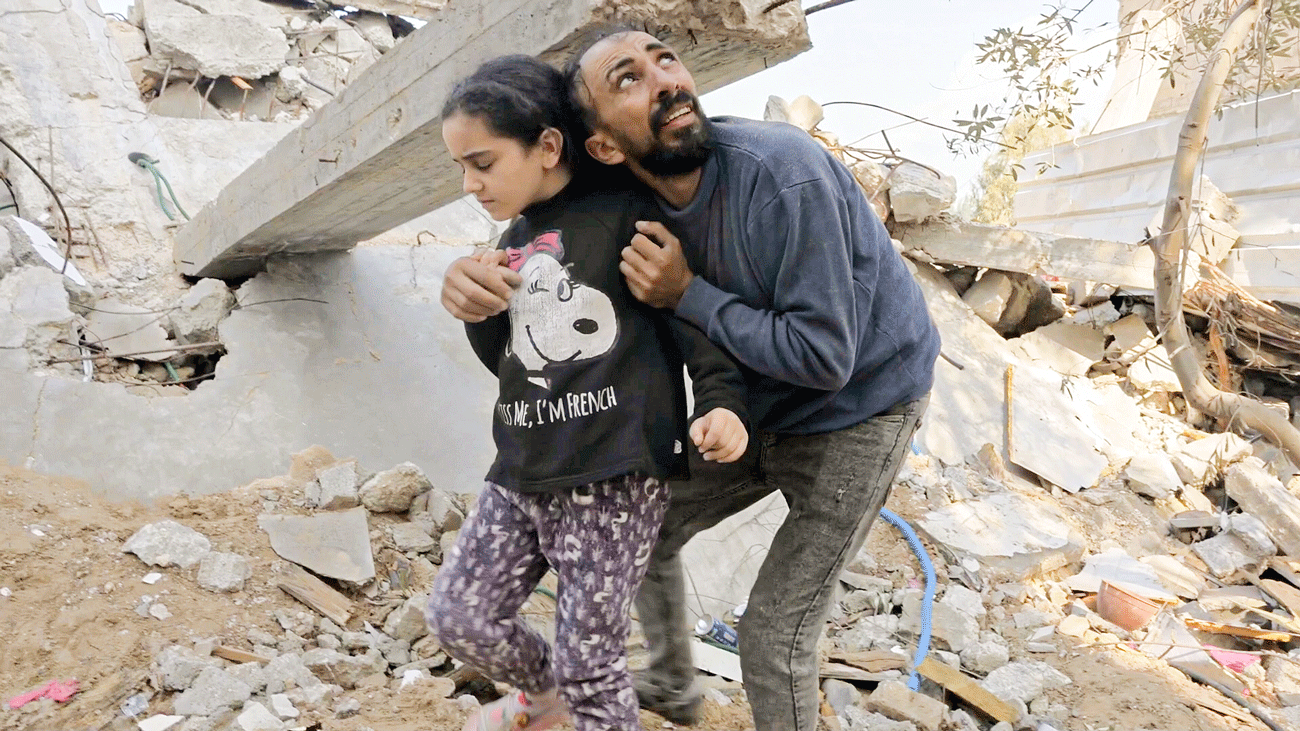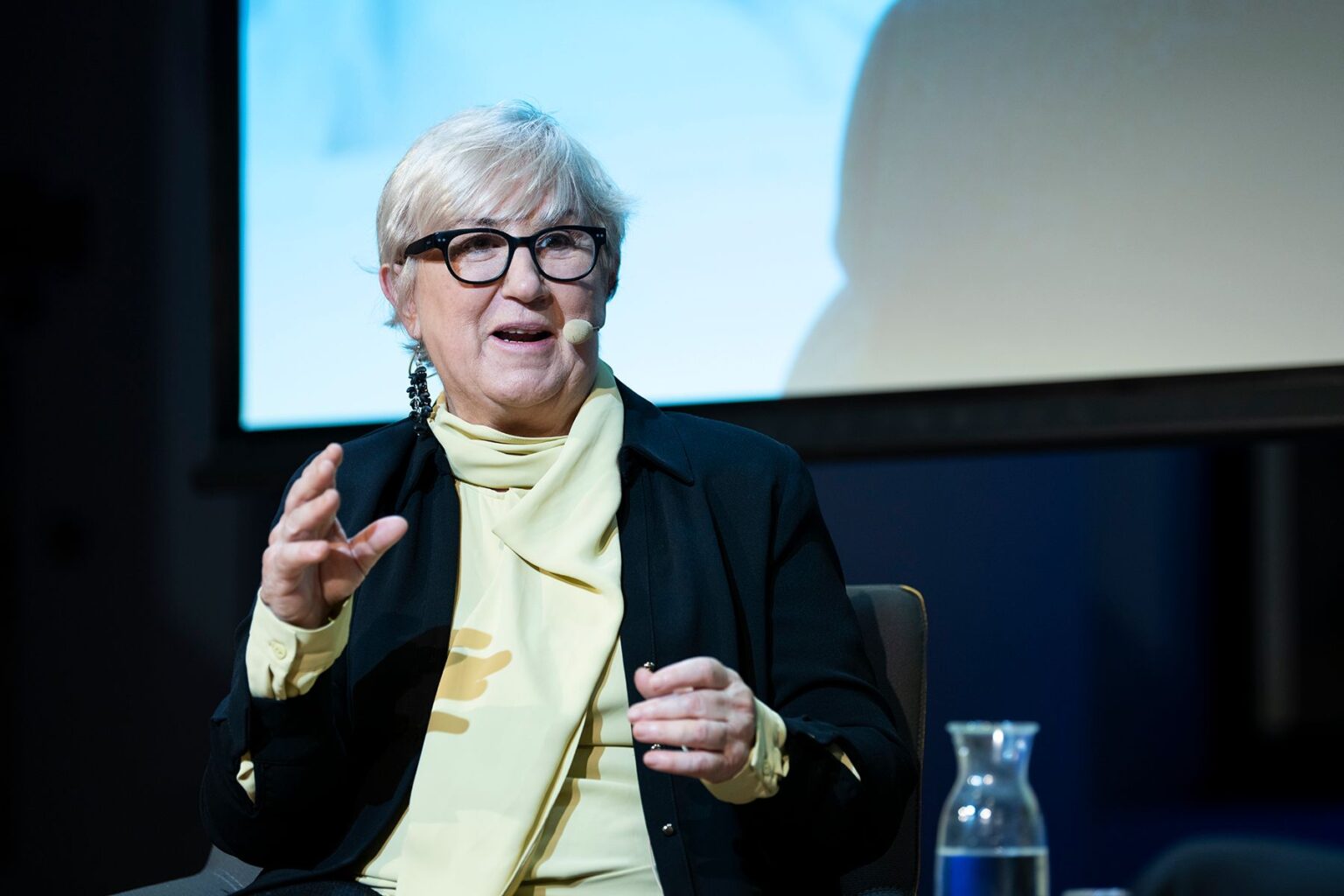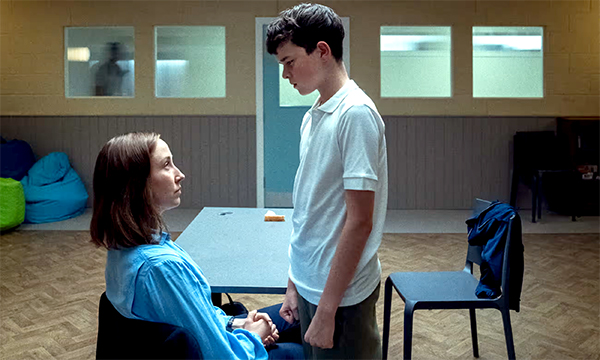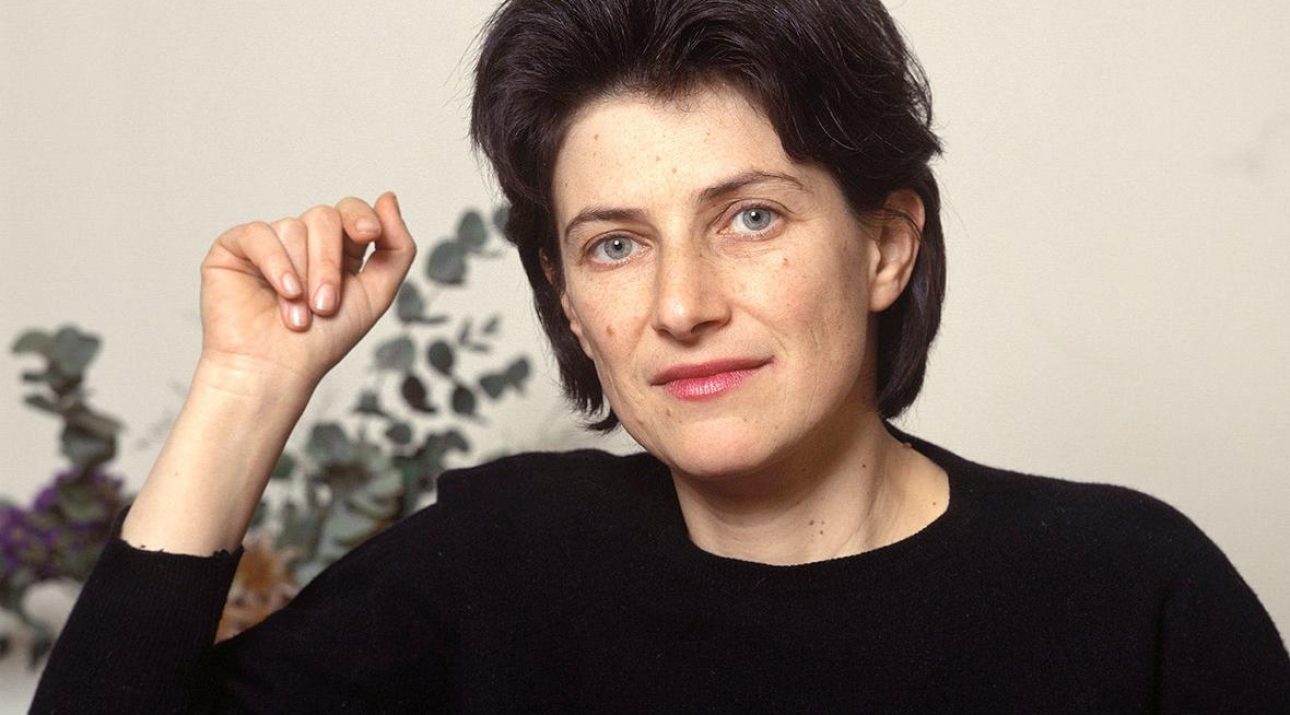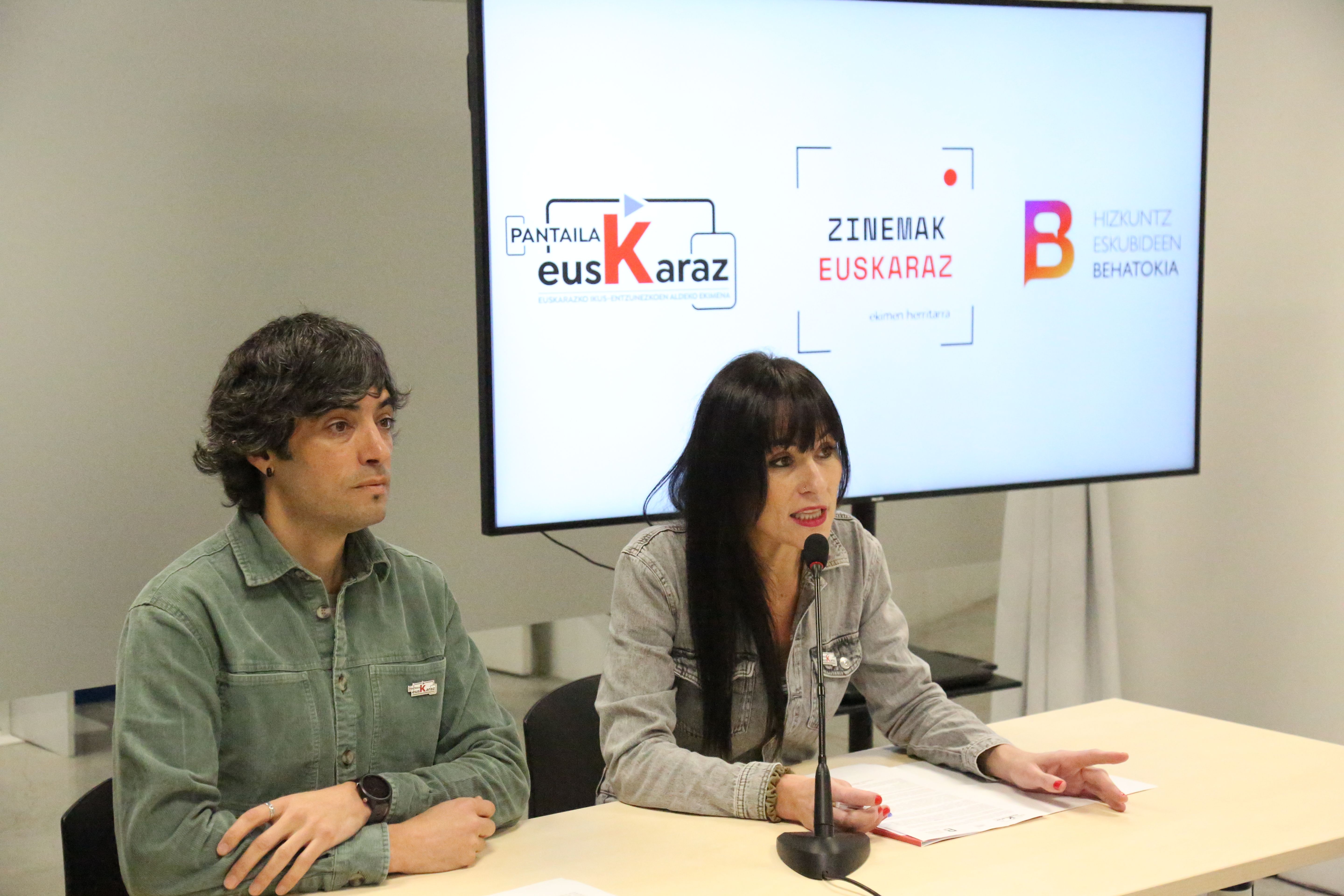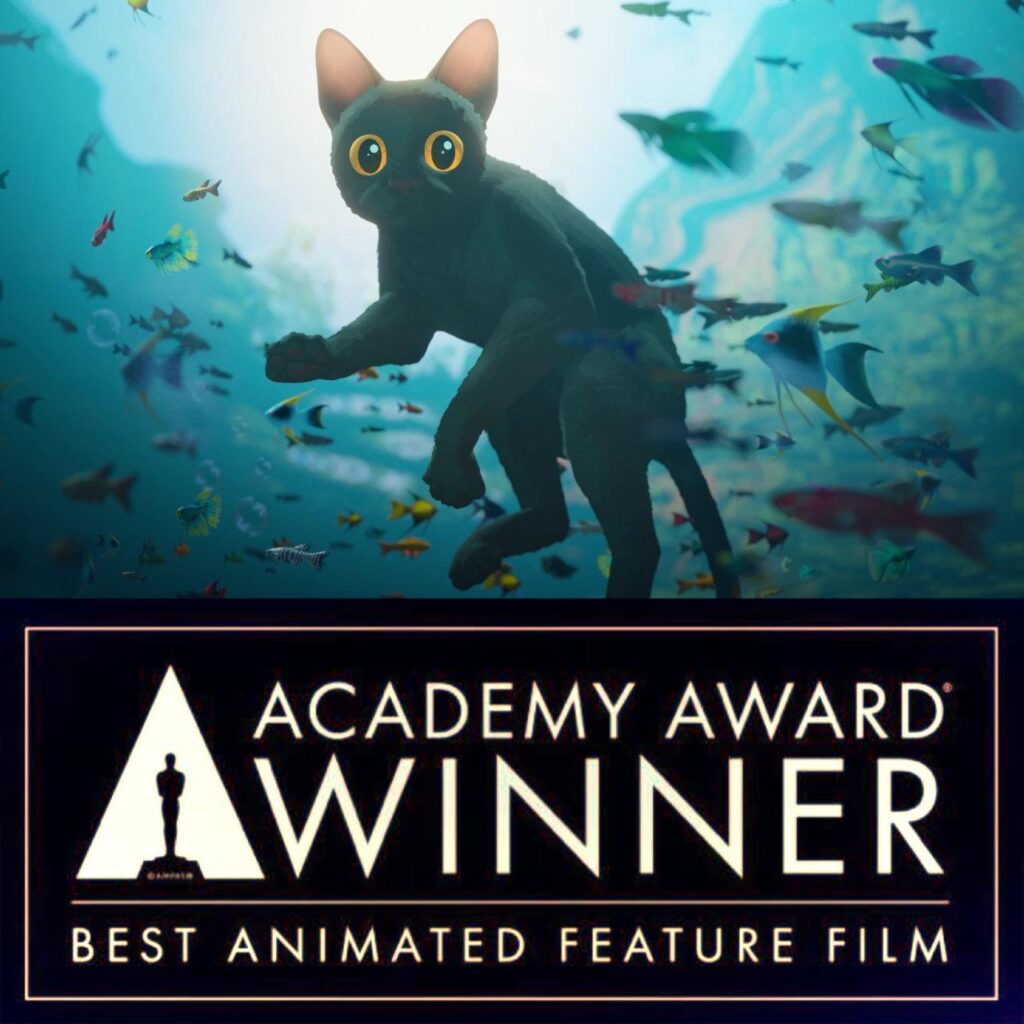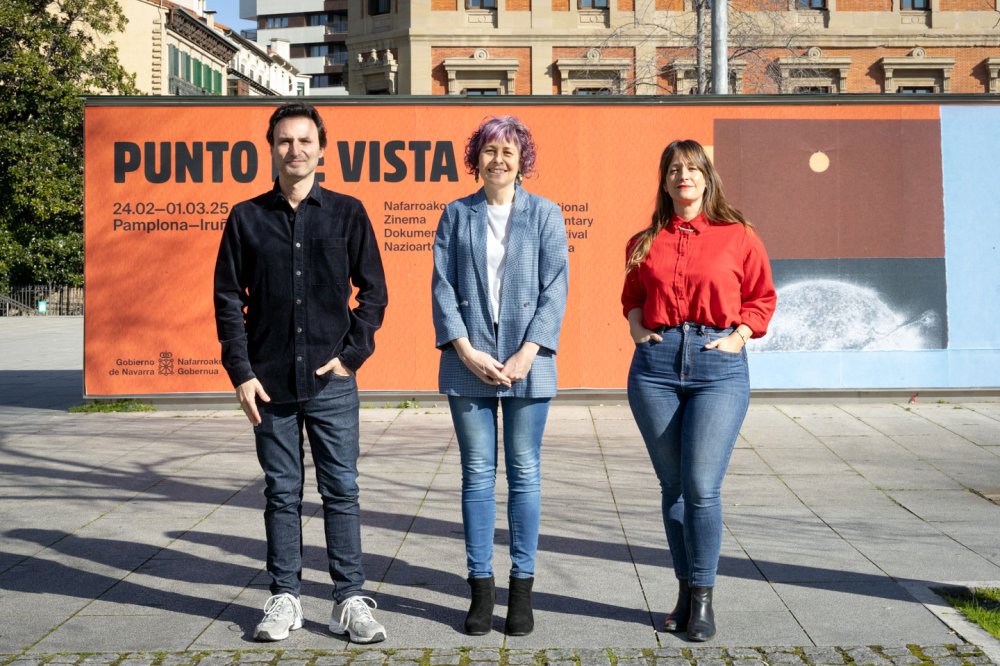"In music, women are doing a great job for them to see us."
- The creative women around him are surprised that they have it, but he's had imposter syndrome for many years. But permanence has taught him that he has done a lot of good things. In 2021 he won the Goya of the Spanish State with Maite Arroitajauregi for the music of the film Akelarre.

Aran Calleja, Bilbao, 1977
“As a child we met with family to see Alfred Hitchcock’s time. He then told the scenes and particularities he would use in his films. The music was inside me, I still remember it.” He has sung music to us in a low voice, smiling and with passion. “It took me to another planet.” Aran Calleja does not dream of making music for movies, but Fine Arts and the violin have taken him there.
We've recently heard a well-known singer who hasn't seen the difference between women and men in music.
It's not just music, but whoever sees it that way lives in the face of his privileges as a man. Most of the teachers and students in music or conservatory schools are women, but in the rest of the music it has taken us a lot to be spectacular. We're doing a great job of getting them to see us. For example, Zea Mays made a nice video. He has formed a group of impressive women to celebrate the anniversary of the song Electricity. The women who are there are getting stronger and stronger, but if we don't show that force intentionally, they don't see us. Even today the posters of many festivals are mostly masculine, there is no balance.
In pedagogy, therefore, the majority are women. Is the chain breaking in that path that leads from studies to music?
Among the orchestra directors, for example, there is only one woman of ten men. In positions that need to manage power, or that have some additional responsibility, or that need to manage groups, it's hard to see women. The structure of our society, of course, has a lot to do with it. Conciliation and care have historically been related to women, and it seems that if we assume some kind of responsibility outside the home, we will not be able to do that other work that falls to us. This makes it unconsciously difficult for us to take responsibility, but we are often afraid of sentencing. Perhaps what we need is not only for women to assume this kind of responsibility, it would be good for men in positions of responsibility to move towards those jobs that have historically been attributed to women. This can help maintain a balance.
The other day I heard the director Albert Serra say that he asks for all the involvement of the assemblers of his films and that if they tell him that they have children he doesn't want them in their work. The director may be saying these things about his istrionic character, but life is much more than work. I too am obsessed with my work. After all, when one thing you really like, you find the way at that point of obsession, but there are people around you. Men have been taught that leaving everything else is the only way to do things, but in the case of women, they punish us if we assume this kind of responsibility.
"How many times have we seen thrilled women receiving a prize? I'd like to see men unable to invent words, but they're afraid to break them in public. We've worked that resilience, and we know that if we break, we'll rise up."
Perhaps the myth of genius influences. That is, geniuses are like this on the subject of being geniuses, and in everything else they are forgiven for being disaster.
Of course! This figure is romantic: being geniuses in something specific, they are forgiven anything that is done in other areas. Well, I think you can be a genius in physics, in cooking or in music, but if you don't have more capacity for life, you might not be that genius. Being an artist is something more terrible. Why am I more an artist than others? Anyone can be an artist in himself, but few of us have the privilege of living from what we create. In my case, I studied Fine Arts, and my environment has accepted the path I've been making. At first I had a ghost on top of me: it's almost impossible to live out of the arts. My family didn't think I was going to become an artist, but the things that have been going on have been accepted, and I think I've had a privilege in that sense that a people haven't had.
You asked why you are more an artist than others. I remember we were at the table at the Bizkaia Women's Creative Encounters and you talked about the funnel syndrome. I was surprised. Most
creative women have had or have had that syndrome, but we're surprised that they're equal to us. The system has taught us that we do not deserve the good things that happen to us. If you escape the path that had been proposed for you, and you get things right, they will tell you that it is chance and that if they keep going well, luck. The thing is, it's not always a matter of luck.
.jpg)
It's the result of work on most casos.Hay that work a lot,
but you also have to know how to do that work. There are a lot of good people trapped in an environment that doesn't allow them to develop their capabilities. In any case, women are asked for a great deal, as well as doing our job well. We have to take care of the way we are, we cannot be remarkable. How many times have we seen thrilled women receiving a prize? I'd like to see men unable to invent words, but they're afraid to break them in public. We have worked that resilience, and we know that if we break, we will rise. Therefore, it is clear that the heteropatriarchal system is not good for them. With us, the system is tougher, but I wouldn't want us to always have to do the hard. Then, social patterns emerge from these roles.
If I were to go to the round tables or conferences in the future, I would like to talk about my work: the techniques I use... At the moment, however, we are constantly talking about what it took us to be here and it is necessary to put these experiences on the table.
"I thought somebody was going to come and tell me what the hell I was doing in this job."
Inside the music, you create movie music. Is there any special reason?
It's the path I've taken. When we were children, at the time when at home there was only television and remote control, we met the whole family to watch movies. Film music for me is those shared moments and fantasy. I studied fine arts, but I was also in the conservatory and I played the violin. I entered the audiovisual media as a specialty and the two roads were mixed. At the time, I was buying soundtrack records from films, and I watched movies again. When we did a short or a video in college, the music left it to my account, and there I met Borja Kobeaga.Cuando made the first short
film, The first time, he asked me to put music to him. It was a story told with great sweetness, with Maribi Bilbao as the protagonist and it was seen a lot. I picked up the violin and made a tango like I wanted: without looking at whether it's OK or OK from the point of view of the counterpoint. Yes, with great affection and respect. The four voices were recorded by myself, and the recordings of the short began after making the piece. Maribi Bilbao asked to put that tango when the recordings started, and with that piece I got to a very nice place. When I was a kid, I didn't say I was going to make music for movies, but that short opened a path for me.
I guess from there the encargos.Se I saw a lot of that
short and got calls, but I felt very impostor because I hadn't learned the composition. I studied violin and harmony, and even though I started studying counterpoint, I didn't finish. I kept working, but I had the impression that one day they would reach me and that someone was going to tell me what I do in this work. But this did not happen! And they gave me work, and they started putting things more seriously, and I had moments of great urgency. In any case, I've had courage and I've been inventing the way as I've walked. I used violin for all things and I always walked in similar worlds: classic, country and folk. I thought if you asked me something else, I couldn't do it.
But it is clear that yes, he has been able to.
I started studying technology on my own, and at 31, SGAE published a scholarship call to go to Boston's Breklee Music School. A friend warmed me up to introduce me, and I spent the first phase. I was called to go to Madrid to play a piece in front of some judges. I didn't think they were treating me, but I left. I made a piece from a composer named Darol Anger.
I arrived in Madrid and the atmosphere of the corridors seemed like a film: people played the scales at full speed, made arpeggios… and I was there with my piece of country. I had always looked at very particular things and I had no technique. I called my piece in front of those men and they asked me why I had chosen Darol Anger. I thought, "That's it! They've caught me!" And I didn't know it then, but Darol Anger was a professor at Berkle, and he made it a lot of fun for them that I didn't know.
I moved on to the third phase. In that third phase, I had an English conversation with a guy. He didn't ask me anything from academia: we talked about life and they received me. It wasn't, no doubt, what I knew the most, it wasn't the best thing that had been presented there, but I went to Boston. Something made me a clac inside and I understood that to be an artist, you need more than just a technique. It's the sum of many characteristics, it's also going to be lucky, but you need to trust yourself. And you have to do a long career to trust yourself.
Sometimes things happen without you deciding. Because you feel comfortable in one place.
I have always trusted my instinct and I have had around me friends who have held me up. This has greatly helped my creative process.
In your creative process, there's something physical, that you have to put music on it. It doesn't look like an abstract process.
Years have passed and everything is still magical. It’s the sum of many things: the script, the connection you have with the director… The director often gives you references: what he thinks, what other pieces he likes… From there I start looking for the colors that the atmosphere of the film will have. When I see that things are taking shape, I give the director a sketch and he tells me what he liked and what he did not, and I also start to understand what he wants. Work is collective in this sense.
"Most of the teachers and students in music or conservatory schools are women, but in the rest of the music, we have had a hard time being showy."
It helps you to see the acting, but I start by reading the script. I like to have something written before they start rolling the movie, if there's time. Anyway, the image commands and is not a process of free creation. You should decide not to be present in some cases. Maybe there's a scene that doesn't need music, and you have to know how to accept it.
The image sends. Have you never been afraid that your work will be in the background?
No. If a movie is a puzzle, music is a piece and it must depend on the image. Yes, it adds information, maybe abstract information, but information. However, it is also important to keep music in the background. In some sequences, music plays a leading role. For example, in the movie Marco, which is now in the movie theaters, I've had some of them. However, what I love the most is to see how music performs the narrative functions without it being fully understood that it is there.
You've come a long way. Do the prizes help?
They give you visibility and help you gain self-confidence. In any case, you should continue to work once you’ve won the prize. Maite Arroitajauregi and I won the Goya with the work done for the film Akelarre. It is true that since then I have worked more. He stopped on the road and gave me a chance to breathe, but he also had his bad side. I didn't really believe I deserve that prize, and in order to enjoy this moment, you have to give yourself permission to believe you deserve.
.jpg)
Have you continued to work with Maite Arroitajauregi and her?
It's curious, because it's the first time we got together to work, and people thought we've been working together for years. Since then, we have made the soundtrack of Irati, the tune of the festival and the music for the short film Betiko Gaua by Eneko Sagardoy, for example. We're also working on Paul Urkijo's new work.
If you now receive such a prize, will you believe you deserve it?
I think so.
"It would be OK for men in positions of responsibility to take a step forward in those tasks that have historically been attributed to women. This can help maintain a balance."
You are making the way.
Since 2020, I have worked for myself and worked professionally. I am very proud of what I have done during these four years: Irati, Marco, Cinco Lobitos… If it were now to win a prize, I would enjoy it and appreciate it. Even if a frightened child who lives inside me could come out, I wouldn't hide it. We have to understand that we are referents, that we have travelled the way, that receiving thanks is nice… Many times it has happened to women for fear that we do things wrong, that we have left them undone, and we also have to give ourselves the opportunity to do less good things.
I met you far from the spotlights: it was a hearing of young people with functional diversity, it was a musical therapist.
In those concerts I have to keep crying. Thanks to music therapy, I've learned the value of imperfect things. Now I'm not interested in perfection. I've always asked myself a lot, and then I go with those young people singing and landing Sergio Dalma, Rocío Jurado, Shakira and the songs they love the most. They're not looking right or wrong: they sing freely. That has a terrible strength! It is a pure one! I've been taught to get out of my head and go to my heart.
I recognize that I was looking at you and thinking, “This girl has a Goya and is here!” The most important part of
the ritual is your illusion, and the fact that you come that day also excited me a lot. We invite you and you came. The Goya Prize has made sense over time, for example, when I was asked to take music to school or when my parents took it to the neighborhood. What happens is that when I practice music therapy, film is a long way away, but when I do film, music therapy and all those free expressions are there.
No other land dokumentalaren zuzendari Hamdan Ballal kolono sionistek jipoitu zuten astelehenean bere herrian, beste hainbat palestinarrekin batera, eta Israelgo militarrek eraman zuten atxilo ondoren. Astarte goizean askatu dute.
Donostiako Tabakaleran, beste urte batez, hitza eta irudia elkar nahasi eta lotu dituzte Zinea eta literatura jardunaldietan. Aurten, Chantal Akerman zinegile belgikarraren obra izan dute aztergai; haren film bana hautatu eta aztertu dute Itxaro Bordak, Karmele Jaiok eta Danele... [+]
35 film aurkeztu dira lehiaketara eta zortzi aukeratu dituzte ikusgai egoteko Euskal Herriko 51 udalerritan. Euskarazko lanak egiten dituzten sortzaileak eta haiek ekoitzitako film laburrak ezagutaraztea da helburua. Taupa mugimenduak antolatzen du ekimena.
Pantailak Euskarazek eta Hizkuntz Eskubideen Behatokiak aurkeztu dituzte datu "kezkagarriak". Euskaraz eskaini diren estreinaldi kopurua ez dela %1,6ra iritsi ondorioztatu dute. Erakunde publikoei eskatu diete "herritar guztien hizkuntza eskubideak" zinemetan ere... [+]
Geroz eta ekoizpen gehiagok baliatzen dituzte teknologia berriak, izan plano orokor eta jendetsuak figurante bidez egitea aurrezteko, izan efektu bereziak are azkarrago egiteko. Azken urtean, dena den, Euskal Herriko zine-aretoak gehien bete dituztenetako bi pelikulek adimen... [+]
Otsailaren 24tik eta martxoaren 1era bitartean, astebetez 60 lan proiektatuko dituzte Punto de Vista zinema dokumentalaren jaialdian. Hamar film luze eta zazpi labur lehiatuko dira Sail Ofizialean; tartean mundu mailako lau estreinaldi eta Maddi Barber eta Marina Lameiro... [+]
A conference for architects has just been held in Madrid to discuss the crisis of the professional architect. They have distinguished the traditional and contemporary way of being an architect. What is traditional? From the epic architect who appears in The Brutalist, where... [+]











